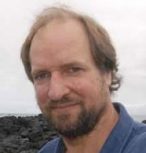DNA reveals the past and future of coral reefs
New DNA techniques are being used to understand how coral reacted to the end of the last ice age in order to better predict how they will cope with current changes to the climate. James Cook Univer

From 2005 to 2022, the main node of the ARC Centre of Excellence for Coral Reef Studies was headquartered at James Cook University in Townsville, Queensland (Australia)








Abstract: Managers dealing with threats to the marine environment face a fundamental problem in that ecological changes occur out of sight. Allocation of resources to where conservation intervention is most useful thereby becomes difficult and inefficient, and major losses of biodiversity go unnoticed. The Reef Life Survey program (RLS) addresses these problems through the training of a small network of skilled recreational divers in the technical knowledge needed to quantitatively survey reef fishes, invertebrate and algal communities using standardised scientific methods. Because of increased cost-effectiveness, RLS data allow analyses based on consistent methodology to be undertaken at larger geographic and temporal scales than possible for scientific dive teams. The dataset now includes information for >3500 species from 40 countries and >2000 sites, allowing the first global-scale assessments of inshore marine biodiversity using systematically-collected quantitative data. To date, RLS data have been used to: (i) assess how key attributes (no-take, well-enforced, long-established, large, isolated) influence ecological response following protection within 87 MPAs worldwide, (ii) describe the distribution of threatened species, and (iii) quantify community-level impacts of invasive species, fish farms, and urban pollution. Through the longer term, data will play a major role in tracking interactive effects of climate change and other stressors on coastal biodiversity.
Biography: Graham Edgar is best known for his writings for the wider public. His book Australian Marine Life is highly valued and much used by temperate marine biologists. It was awarded the Whitley Award by the Royal Zoological Society of NSW in 1997, and a companion volume on ecology, Australian Marine Habitats, also received a Whitley Award in 2001. The knowledge contributing to these books is deep and extensive, and many years in the making. Additional to these books, his >100 journal publications are widely recognised and highly cited in the scientific literature. Graham is one of a few generalist marine scientists, spending time in a variety of fields, as well as interdisciplinary areas. His interests and scientific publications cover seaweed-fish-invertebrate interactions; marine biodiversity; crustacean and fish taxonomy; seagrass habitat ecology; temperate reef ecology; estuarine ecology; marine protected areas; effects of fishing, aquaculture, oil spills, sedimentation, introduced species and global warming on the marine environment; identification and protection of threatened marine species; and marine conservation planning. He was Head of Marine Science and Conservation at the Charles Darwin Station in Galapagos from 2000-2002, and is currently Professor at the Institute of Marine and Antarctic Studies, University of Tasmania. In 2011, Graham was awarded the Silver Jubilee Award – AMSA’s highest honour for lifetime achievement in research.
New DNA techniques are being used to understand how coral reacted to the end of the last ice age in order to better predict how they will cope with current changes to the climate. James Cook Univer
A new study on the effects of climate change in five tropical countries has found fisheries are in more trouble than agriculture, and poor people are in the most danger. Distinguished Profess
James Cook University researchers have found brightly coloured fish are becoming increasingly rare as coral declines, with the phenomenon likely to get worse in the future. Christopher Hemingson, a
Researchers working with stakeholders in the Great Barrier Reef region have come up with ideas on how groups responsible for looking after the reef can operate more effectively when the next bleaching
Abstract: As marine species adapt to climate change, their heat tolerance will likely be under strong selection. Individual variation in heat tolerance and its heritability underpin the potential fo
Abstract: The Reef Ecology Lab in KAUST’s Red Sea Research Center explores many aspects of movement ecology of marine organisms, ranging from adult migrations to intergenerational larval dispersal
Abstract: Macroalgal meadows are a prominent, yet often maligned component of the tropical seascape. Our work at Ningaloo reef in WA demonstrate that canopy forming macroalgae provide habitat for ad
Abstract: Sharks are generally perceived as strong and fearsome animals. With fossils dating back at least 420 million years, sharks are not only majestic top predators but they also outlived dinosa
Abstract: Connectivity plays a vital role in many ecosystems through its effects on fundamental ecological and evolutionary processes. Its consequences for populations and metapopulations have been
Abstract: Evolution of many eukaryotic organisms is affected by interactions with microbes. Microbial symbioses can ultimately reflect host’s diet, habitat range, and even body shape. However, how
Abstract: The past few years have seen unprecedented coral bleaching and mortality on the Great Barrier Reef (GBR) but the consequences of this on biodiversity are not yet known. This talk will expl